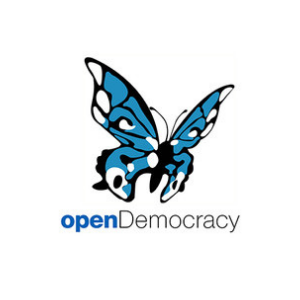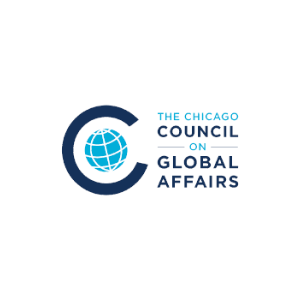
How maps can guide us to a better future
As explained in my new book with Ian Goldin – Terra Incognita: 100 Maps to Survive the Next 100 Years – maps can help make sense of the world around us.

As explained in my new book with Ian Goldin – Terra Incognita: 100 Maps to Survive the Next 100 Years – maps can help make sense of the world around us.

On July 7, Jair Bolsonaro, president of the world’s second hardest-hit country by COVID-19, announced he had tested positive for coronavirus and had mild symptoms. Shortly afterwards, he removed his mask to show everyone he was ok.

This week, PS talks with Robert Muggah, a co-founder of the SecDev Group and the Igarapé Institute.

A week before the death of George Floyd in the US city of Minneapolis in May, Brazilians were mourning one of their own.

As consensus was finally achieved on July 7, a final draft of the UN-75 political declaration has been approved and is expected to be adopted by world leaders on Sept. 21 at United Nations headquarters through virtual means.

On multiple fronts, data-driven policymaking has informed and improved Latin America’s response to COVID-19 – from information about the availability of hospital beds and ventilators to economic measurements to help direct relief packages for businesses and workers.

This study considers the trajectories of armed conflict in a ‘business-as-usual’ scenario between 2020-2030.

The only surprise about Jair Bolsonaro’s diagnosis for COVID-19 was that it took him so long to test positive.

Across the United States, the debate over the future of policing is gathering steam.

Political analyst Robert Muggah says Brazil President Jair Bolsonaro’s positive COVID-19 test may spell the beginning of the end for his administration

Far-right Brazilian President Jair Bolsonaro, who has presided over the world’s second worst coronavirus outbreak after the U.S., said Tuesday that he had tested positive for the virus.

Brazil has now surpassed a million COVID-19 cases, a grim milestone for the country with the second most coronavirus infections in the world. It’s been averaging about a thousand deaths per day for the last month

Brazil is poised to overtake the United States for most total COVID-19 infections and deaths globally — but far-right President Jair Bolsanaro is preoccupied with politics and discredits the pandemic’s risk and response.

«I can’t breathe!» «Jeg får ikke puste!» George Floyds siste ord er blitt slagordet for en verdensomfattende bevegelse

“I can’t breathe.” The final words gasped by George Floyd are now a global meme. They were recorded on the mobile phone of a bystander while Mr. Floyd was being suffocated to death by a police officer in Minneapolis.

Maria Diva do Nascimento was worried as she set off for her job at one of Rio de Janeiro’s biggest hospitals wearing a face mask she hoped would keep her alive.

The coronavirus pandemic is exposing the quality of governments around the world. Many national leaders have failed the test—in contrast to the leaders of regions and cities

Having ravaged some of the world’s wealthiest cities, the coronavirus pandemic is now spreading into the megacities of developing countries.

The first wave of the COVID-19 pandemic may be receding in some parts of Western Europe, East Asia and North America, but it’s rapidly taking-off in Latin America, Africa and South Asia.

Head of Igarape Institute in Rio de Janeiro gives us more on the absurd situation in Brazil, due to the lack of political leadership and the denial of the severness of the pandemic

To say that COVID-19 changes everything is already a cliché. But it’s also true.

Increased time inside close quarters during the coronavirus pandemic is causing some urbanites to consider moving toward the suburbs, a recent survey shows.

Carta Conjunta sobre a situação dos Yanomami e Ye’kwana no contexto da pandemia do COVID-19

Following the recent ouster of Brazil’s popular justice minister, Sergio Moro, the world’s fourth-largest democracy is on the brink of plunging into even deeper instability.

As the novel coronavirus spreads throughout Latin America and the Caribbean, social media have been rife with reports touting some of the environmental and climate benefits of the pandemic.

After a temporary lull brought about by sweeping Coronavirus quarantine measures, violence is increasing in many parts of Latin America

Cities are at the center of this pandemic, as they have been during so many plagues in history.

The COVID-19 pandemic is painfully exposing the world’s many interconnected fragilities

When Sérgio Moro resigned as justice minister on Friday, accusing Jair Bolsonaro of meddling in a police investigation, the former star judge shifted everyone’s attention away from coronavirus — by triggering the gravest political crisis of the Brazilian president’s administration so far.

The pandemic has turned the world outside our doorsteps into a newly formed wilderness. Public spaces are now areas to be ventured into sparingly, except by essential workers, so for most of us our worlds have shrunk to the size of our homes.

O Instituto Igarapé utiliza cookies e outras tecnologias semelhantes para melhorar a sua experiência, de acordo com a nossa Política de Privacidade e nossos Termos de Uso e, ao continuar navegando, você concorda com essas condições.

